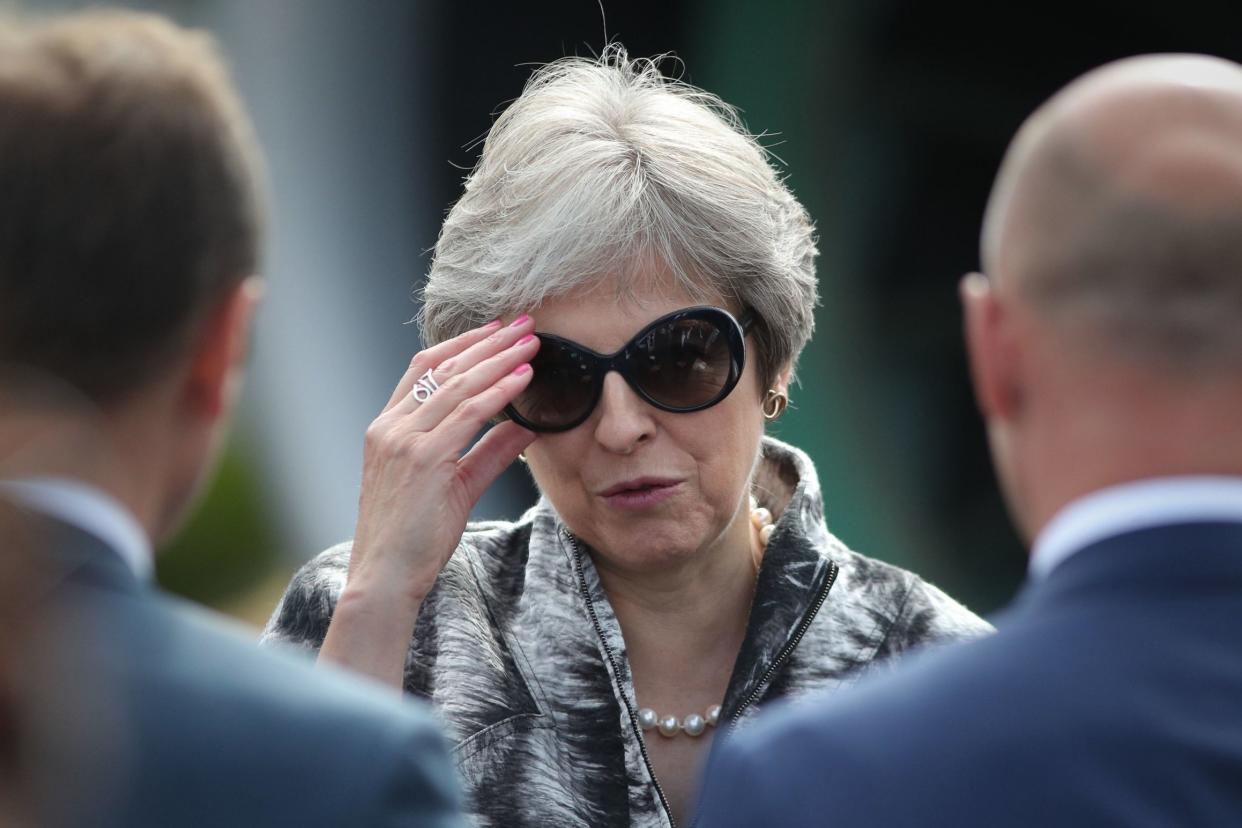The right way out of this Brexit mess is an election, not another referendum

If this is an impasse, what would a full-blown crisis look like? In the 12 days since the Chequers summit , the pace of the action has been giddy.
Senior ministers have resigned. Vote Leave, the pro-Brexit referendum campaign, has been found to have breached electoral law , fined £61,000 and reported to the police. In the Commons, Theresa May has caved in to four amendments to the Taxation (Cross-border Trade) Bill put down by the hard-Brexit wing of her party.
Last night she fought off a bid by Remainers for Britain to stay in the EU customs union if a free trade area had not been negotiated by January 21 — but only with the votes of Labour Brexiteers and, reportedly, by threatening her own rebels with a general election this summer . The parliamentary debate continues today. Rarely has the House seemed so divided, in so many complex configurations.
Yet the Chequers deal has also had the paradoxical effect of uniting the political class in its recognition that this particular version of Brexit is an ex-agreement: it has ceased to be. The Prime Minister may claim that it is only stunned — “Norwegian deals stun easily”. But it only remains on the diplomatic perch because she has nailed it there.

Compounding this sense of collective unease is the Electoral Commission’s finding that the official Leave campaign was guilty of a serious breach of referendum funding rules. Please note, too, that the separate pro-Brexit campaign group, Leave.EU, has already been fined £70,000 for exceeding its spending limit in the 2016 campaign.
In what can only be called victor’s remorse, Michael Gove tells Tom Baldwin in an interview for his excellent new book Ctrl Alt Delete that he now regrets the lurid warnings of Turkish immigration used by Brexiteers two years ago, and that “if it had been left entirely to me the Leave campaign would have a slightly different feel”.
Small wonder, then, that the gravitational pull of a second referendum is growing daily. In The Times this week, former Cabinet minister Justine Greening argued that the only solution “is to take the final Brexit decision out of the hands of deadlocked politicians, away from the backroom deals, and give it back to the people”.
Greening further suggested that the hypothetical ballot paper should bear three options: the PM’s final negotiated deal (assuming there is one); staying in the EU; and a no-deal clean break. To ensure a consensus, she calls for a transferable vote system in which the public would be able to express a first and second preference.
All of this sounds beguilingly sensible. It is worth remembering that A V Dicey (1835-1922), the great constitutionalist and theorist of referendums, regarded such votes as a stabilising force, a means by which the public could rein in the political class. “The referendum is the people’s veto,” Dicey wrote. “The nation is sovereign and may well decree that the constitution shall not be changed without the direct sanction of the nation.”
In this instance, according to Dicey’s logic, the voters would be given the chance to assess the mess that their representatives have made of the 2016 referendum result and to issue fresh instructions. This, in essence, is the argument advanced by the People’s Vote campaign.
Such a prospect has undoubted visceral appeal to Remainers such as myself. But one must be pitilessly conscious of “confirmation bias” in such cases: the natural human tendency to approve arguments that conform to one’s own beliefs or inclinations.
"Imagine the élite, after two years of talking to itself, going back to voters and asking for a different answer"
Which is precisely why it is so important to be honest about the reality of a second referendum. Imagine that reality: the political élite, after more than two years of talking to itself, goes back to the voters and asks for a different answer.
This, in fact, recalls one of the very worst practices of the EU: as when the Danes rejected the Maastricht Treaty in 1992, only to be asked again in a second referendum the following year — in which they finally gave their approval. It is a variant on Henry Ford’s famous aphorism: any customer can have a car painted any colour that he wants so long as it’s black.
Naturally, the putative second referendum would be framed by its proponents as an exercise in hyper-democracy: a fresh opportunity for the British people to assess the consequences of the negotiations with Brussels.
In practice, the vote would be a strategic gift to the populist Right, who would howl that the metropolitan classes were simply seeking to overturn the 2016 mandate and wriggle out of their duty to extricate Britain from the supposed tyranny of Brussels. Do not underestimate the appeal such a cri-de-coeur might have. It matches the spirit of the age and the conviction that a corrupt political oligarchy is engaged in a serial betrayal of “the people”.
Second, and more important: the use of a referendum to break a parliamentary impasse would set a terrible precedent. It is precisely such hard cases in which representative democracy is meant to show its mettle. What a feeble message it would send if Parliament were simply to hand the mangled issue of Brexit back to the public and say: you sort it.
It is still just about conceivable that there will be a second referendum. But for that to happen there would have to be an unambiguous popular upsurge in favour of such a vote.
As things stand, it would be quite the wrong way for our political leaders to call the public to the duties of citizenship. The right way — horribly, awkwardly but inexorably — is another general election.

 Yahoo News
Yahoo News 
